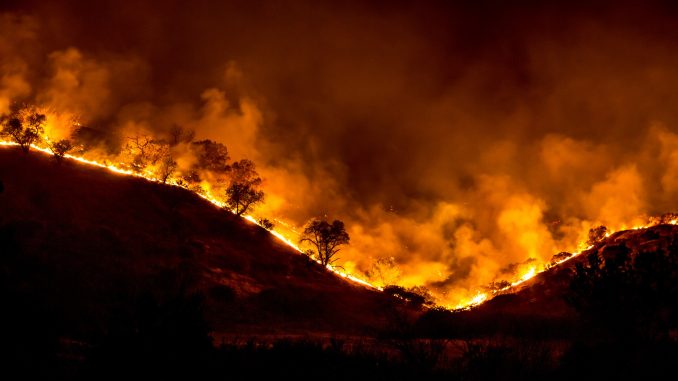
Climate now is not an out-of-the-way thing at all; it seems to be predominantly urgent issue in the world of today. Changing features present both drawbacks and advantages: Dying in touch with most natural of deaths for death is due to its ill effects not quite prominently understood by all yet new morbidity of a different nature places forth Its own special category!
Changes in the Earth’s physical and biological systems are triggers for multiple diseases that have already killed millions of people throughout history as resources rather than organs perish. This article is intended to help the reader keep increasing the complex of language and find out real facts about health problems by providing words from various viewpoints.
Rising Temperatures and Heat-Related Illnesses
One direct result of climate change is that more people will suffer from heat-related diseases and die. As global temperatures rise, so the number of heatwave days increases. These are longer, hotter and more frequent than in the past. In bad years for rice, Chinese farmers may need break from intensive labor; medieval citizens considered head nets to keep themselves safe against blisters of water that appear on skin due to sweat; via air-conditioned units in US over two thousand people die each summer.
For those most sensitive to heat such as infants and seniors who suffer from disease already, heat stress can lead to dehydration or heatstroke while cardiovascular or pulmonary diseases are often exacerbated as well During July and August 2003, Europe was subjected to the highest temperatures it had seen in 500 years. France alone lost over 15,000 inhabitants; an additional 2,300 people died in Italy–a country holding record highs for temperature and humidity ( This makes for humidity in air). This underlines how global warming can be fatal.
Spread of Infectious Diseases
Climate change has also affected the geographical distribution of infectious diseases. Warm temperatures and changing patterns in rainfall mean that conditions will be more and more favourable for vectors such as mosquitos, ticks other plague pests which may cause human illness. These instruments are gradually conquering wider areas within a latitudinally extended belt; they shall eventually come home to roost with the disease. Besides, when there is flooding or hurricanes extreme weather events will interfere with clean water resources and people may be bludgeoned by outbreaks of water-borne diseases like cholera. Public health indeed faces a massive threat from such increasing natural disasters.
Food Security and Malnutrition
The effects of climate change on food production are resulting in widespread hunger and malnutrition. Sudden changes in weather, such as droughts, floods and storms of various types, have caused total crop failure and an overall decrease in the amount of grain available. Moreover, higher temperatures can reduce the amount of protein, iron and zinc in crops people depend on for food. This results in worse nutrition and helps to further increase cases of serious malnutrition, particularly in low-income communities as a whole. Economic instability and increasing conflict serve only to make this situation worse while the world’s climate changes.
According to the World Health Organization, as a result of climate change by 2050 an extra 500,000 deaths per year will be made through malnutrition.
Mental Health Impacts
Making the mental health impacts of climate change better known is an issue that is developing.
Traumatic psychological effects arising from extreme weather events may be even worse than the direct physical injuries: droughts, hurricanes, forest fires and floods all participate in creating long-term mental health problems such as anxiety, depression and post-traumatic stress disorder (PTSD).
However, living in an environment which changes constantly over long periods–where you are under threat of disaster, without sufficient food and often moving around–takes a considerable psychological toll on people. Indigenous peoples and others whose way of life depends on the natural environment are particularly susceptible to this sort of problem.
What many do not realize is that climate change has itself become an accelerator of this mass exodus, putting millions of people on the road. They are pushed into squalid and overcrowded destinations such as these by rising sea levels, spreading deserts or the increasing frequency and severity of natural disasters. Here there are no health facilities; all communicable diseases, malnutrition and mental troubles come together with the same supreme force. Worse still, climate change is also accentuating existing health inequalities.
It is frequent that the situation of those countries most affected by it in no small measure what country might be called low-income and countries which are small in area with utterly inadequate infrastructure cannot recover from disasters at all. The worst victims bear the brunt of all these problems. Urgent joint action is necessary on the health effects of climate change. Governments, health-care systems, international organizations: everyone must make strategies for climate adaptation and mitigation top priority; by concentrating entirely on these two aspects we will at a stroke protect vulnerable populations from future health crises which are far too often unnecessary.
More attention will need to be given to building better healthcare systems; there has got to be greater preparedness and strength in infectious disease monitoring and response systems, and by, in traditional climates creating weather-adaptive agricultural techniques for crops that have never been grown in such warm weather before. Public campaigns for healthy living are another urgent necessity: people need to understand what health risks come from climate change and by changing the way they live each and every individual as well as entire communities must learn how these risks can be avoided.
To sum up, the global health and climate crisis is not separate issues. With the temperature rising out of control, the lives of hundreds of millions are in jeopardy. One cannot see wider consequences in a nutshell. But if we act promptly and positively on these, they will be minimized. That way we can be certain that future generations are at least as well off as we are today in time to come.